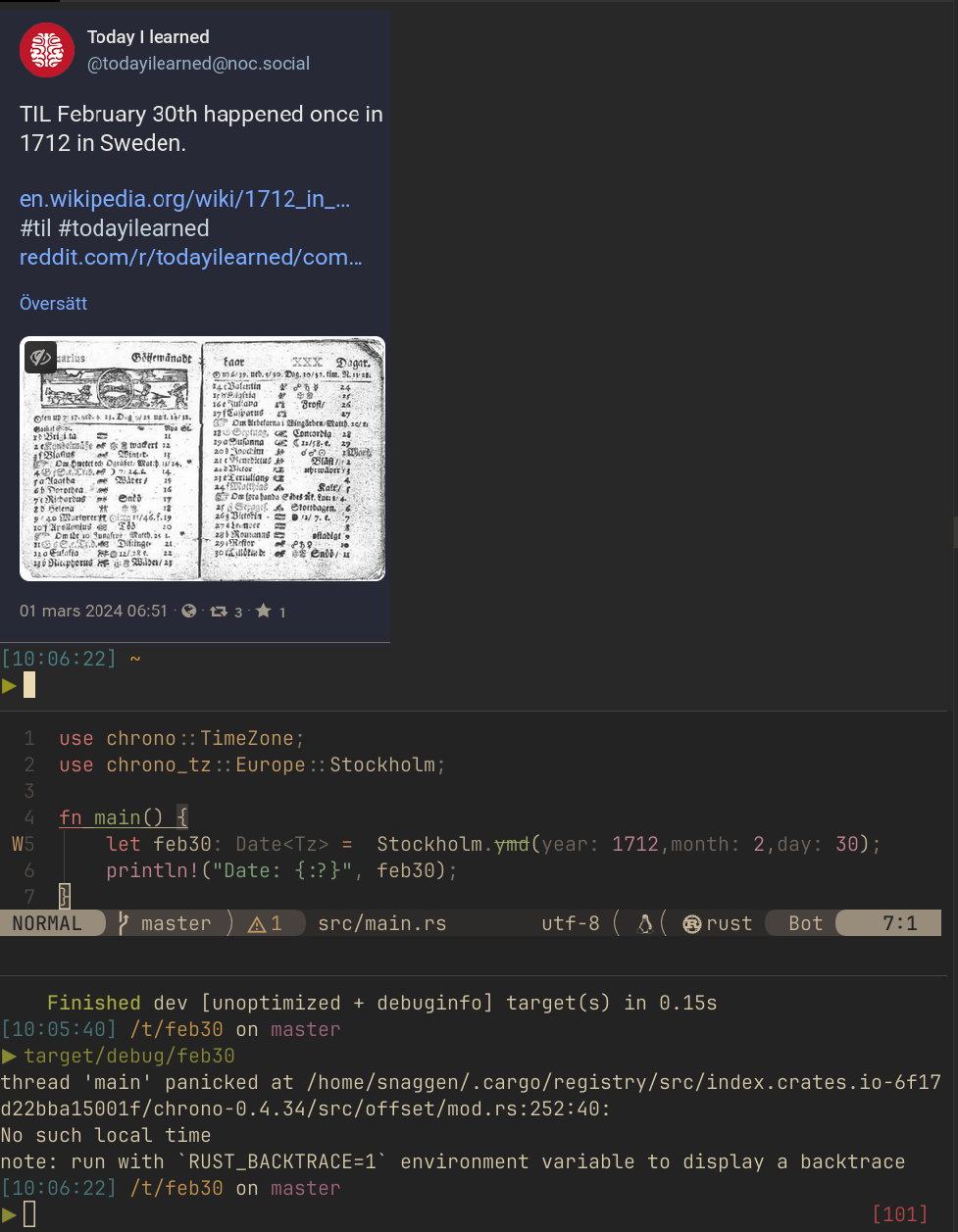this post was submitted on 01 Mar 2024
137 points (98.6% liked)
Rust
6390 readers
309 users here now
Welcome to the Rust community! This is a place to discuss about the Rust programming language.
Wormhole
Credits
- The icon is a modified version of the official rust logo (changing the colors to a gradient and black background)
founded 2 years ago
MODERATORS
you are viewing a single comment's thread
view the rest of the comments
view the rest of the comments

I know you're joking about the bug report, but you could open an issue about it anyway if it genuinely is a thing. I did a quick search though and it looks like it was a transition period between two different calendars. Maybe chrono intentionally assumes Gregorian calendar, or some simplified version of it at least?
Edit: found this in chrono's readme:
I wouldn't open an issue actually since this is specifically called out already.
I think there are so much issues with historical dates, that it is probably not worth fixing it in general purpose libraries. Not only do you need to special case everything like this in relation to dates, but you would also need to keep track of all historical territories (like Prussia and such) and what was part of what. In this particular case, I think that the timezone Europe::Helsinki was part of Sweden and should be included (possibly some cities from current Poland). There is no need to add that kind of complexity to general purpose libraries, that should probably be in some special historical date / region library if needed.
Also, there was not really a concept of time zones before the railway, then the time was floating. The time was not the same in the whole country, because that was not a problem before people started to travel faster and in a way that needed time tables. So, that also fits poorly in a modern general purpose date/time library.